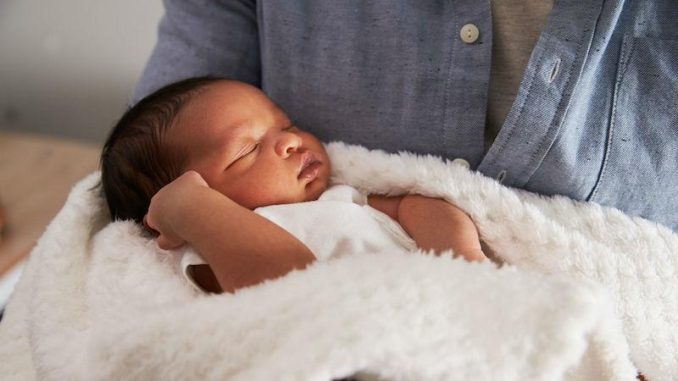
In June 2023, Border Force officers at Manchester Airport grew suspicious of a couple arriving from Lagos, Nigeria, with a baby girl. Their behaviour was odd, and a closer look at their documents sparked deeper concerns. The man, Raphael Ossai, presented a birth certificate naming his travel companion, Oluwakemi Olasanoye, as the mother of the child. But hidden inside their luggage, officers discovered a second birth certificate—this one naming another woman, Ossai’s British wife, as the child’s mother.
According to reports from the BBC, the couple were arrested and later pleaded guilty to immigration offences. They were sentenced to 18 months in prison, followed by deportation. But the real story was just beginning. The true identity of the little girl—referred to by the court as Lucy—remains uncertain, nearly two years after her arrival in the UK.
What is known is that Lucy was born in rural Nigeria in September 2022 to a young, struggling student who gave her up for care just three days after birth. According to documents reviewed by the UK High Court, the child’s biological father is unknown. Lucy was placed in an orphanage, and Ossai later took custody of her with the intent to adopt.
However, the UK court determined that neither Ossai nor Olasanoye was biologically related to the child. They also lacked legal authority to remove her from Nigeria. DNA tests and conflicting documents suggested a breach of protocol, and perhaps more troublingly, potential harm to the child’s wellbeing.
The High Court proceedings have sought to answer a fundamental question: who is Lucy, and what is in her best interest?
Ossai—a music producer—and his British wife argued that they had always intended to raise Lucy as their daughter. They claimed they were acting out of love, not deception, and pointed to approval from Nigerian authorities for Ossai to foster the baby. Yet UK authorities found the couple’s actions deeply problematic.
A social worker from CAFCASS (Children and Family Court Advisory and Support Service), who assessed Lucy in October 2023, painted a bleak picture. At just over a year old, the child showed signs of emotional neglect. She was described as distant, detached, and panic-prone—traits that the social worker said were not consistent with a child raised in a secure, loving environment.
The judge concluded that Lucy had not developed a basic parental attachment and had suffered “significant emotional harm” as a result of her illegal transfer and the instability that followed.
Ossai and his wife made a heartfelt plea to be allowed to care for Lucy, arguing that her placement with white foster carers in the UK risked a loss of cultural identity. “We see her as our daughter,” they told the court, with visible emotion.
But in April 2025, the High Court rejected their application. Justice Jonathan Cohen ruled that the couple’s earlier lies and unlawful actions outweighed their expressed intentions. He ordered Lucy be placed for adoption in the UK and have her name changed. The court emphasised the importance of giving the child the best opportunities for the future, including a stable and secure family.
Despite the judge’s decision, many questions remain unanswered—chief among them, who Lucy really is. With limited engagement from the Nigerian High Commission and no definitive identification of her biological parents, Lucy’s beginnings are shrouded in uncertainty.
While Ossai and his wife have been removed—or are pending deportation—Lucy remains in care, now living in at least her third foster home. Her story reflects the complexities of international child protection, cross-border adoption, and the human toll of migration policy gone wrong.
In the end, Lucy is more than a case file or court decision. She is a child in need of clarity, identity, and love. But for now, she remains a girl between nations—her true story still waiting to be told.

